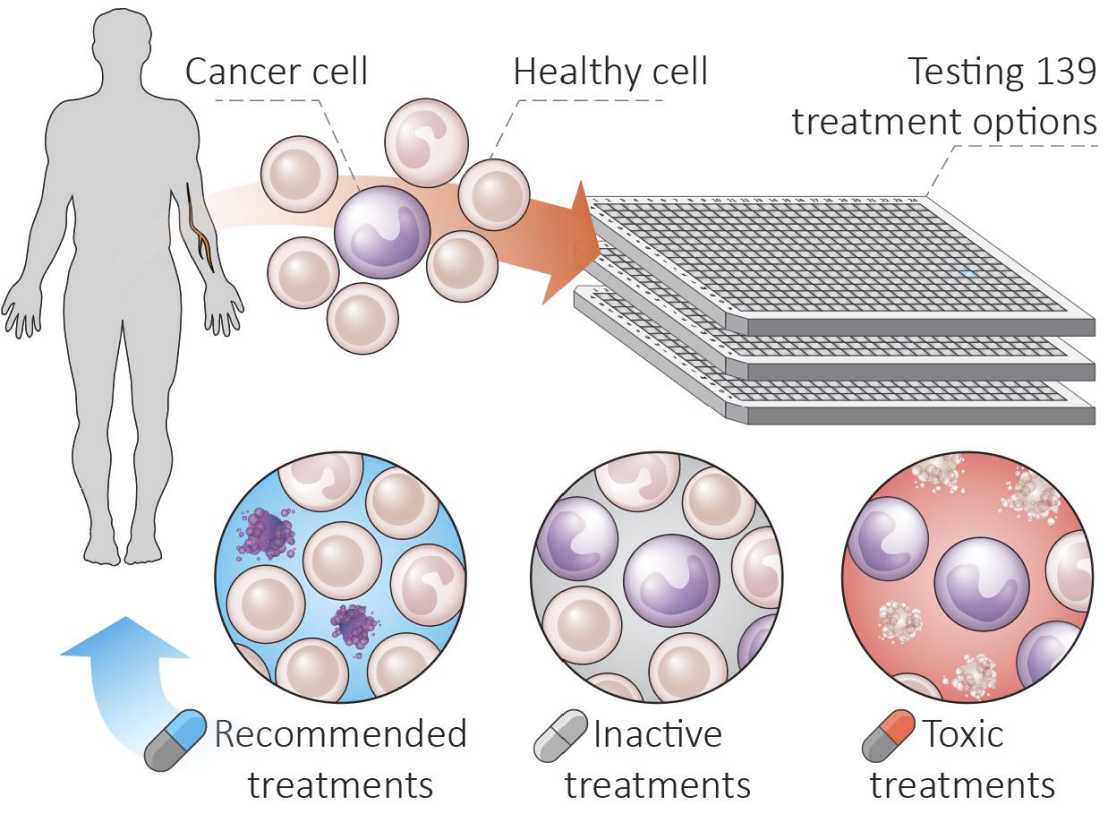Functional precision medicine prolongs survival of advanced blood cancer patients
The Snijder Lab (IMSB), in collaboration with researchers from Medizinische Universität Wien and the Research Center for Molecular Medicine of the Austrian Academy of Sciences in Vienna, publish the first ever successful trial using functional drug testing for personalized treatment of patients suffering from aggressive blood cancers.

Currently established precision medicine techniques are only applicable in about 10% of cancer cases, leaving the majority of patients with insufficient standard-of-care options. A recent paper in Cancer Discovery reports the results of the world’s first successful functional precision medicine approach to personalize patient treatment. The study was conducted by researchers from the ETH Zürich in collaboration with clinicians and researchers from the Medical University of Vienna and the Center for Molecular Medicine in Vienna. The trial evaluates the use of pharmacoscopy, a method which allows for functional drug testing directly in patients’ material, to guide treatment decisions in advanced blood cancers.
Pharmacoscopy is a novel functional precision medicine approach which uses image-based single-cell data to evaluate ex vivo patient drug responses. In the EXALT-1 trial, pharmacoscopy was used to guide treatments of 56 advanced haematological cancer patients. The study shows that these treatments improve the patients’ progression-free survival rates compared to both standard-of-care and the patients’ previous treatments for the majority of patients by at least 30%.
This trial highlights several advantages of functional precision medicine over classical sequencing-based approaches for personalized treatments. Given its single-cell resolution, the method captures tumor heterogeneity, spatial and morphological features and considers healthy cell toxicity. . Finally, with a 5-day median turnover, the study demonstrates clinical feasibility of pharmacoscopy and potential for its incorporation into clinical practice, even for late-stage cancer patients.
To find out more about this study, click external page here (link to the paper in "Cancer Discovery").